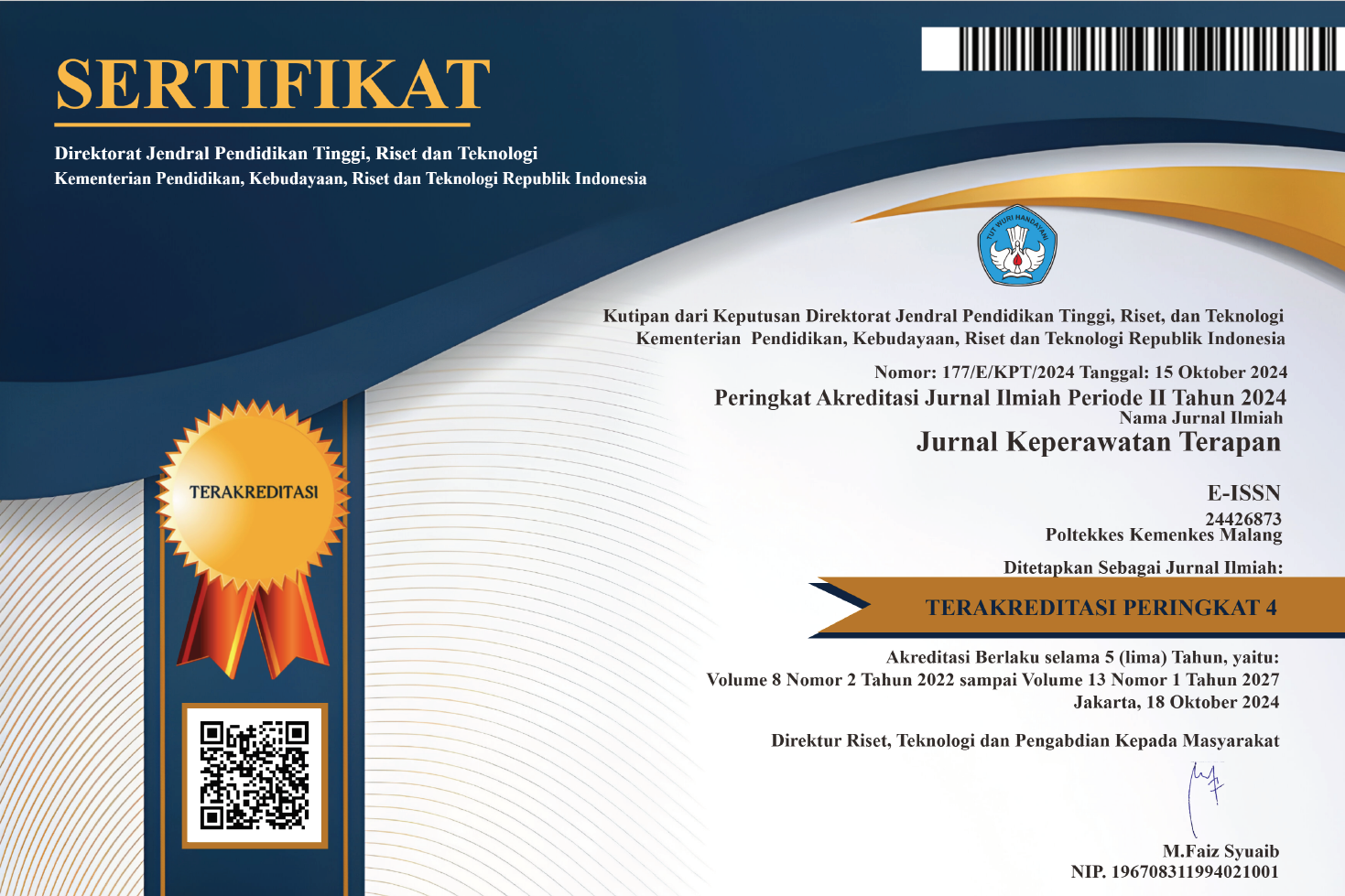Genetics on The Nutritional Status of Adolescents in Malang City
DOI:
https://doi.org/10.31290/jkt.v9i2.4368Keywords:
Health, Adolescent, GeneticAbstract
Overnutrition is a problem related to food, nutrition and global public health which is increasing in prevalence rapidly and can occur at all levels of society. Genetic factors actually contribute 10-30%. The type of research is analytical observational research based on the aim of knowing the influence of genetics on the nutritional status of adolescents. Analytical observational research with cross sectional design. The research was carried out at 10 public high schools in Malang City. The sample was 111 students consisting of students from 10 state high schools in Malang City. The sampling technique uses simple random sampling and proportional sampling. The majority of the research results were 104 (93.7%) respondents who were genetically obese and the majority, namely 65 (58.6%) respondents who had obese families, were overweight. Most of the respondents who had a family history of experiencing excess nutritional status were 32 respondents (28.8%) meaning that family history, namely parents, was higher, increasing the risk of experiencing excess nutritional status, especially in mothers and the majority, namely 16 (14.4%). The results of the analysis show that there is a significant genetic influence on overnutrition status, where the statistical t value is 4.277, meaning ? 1.96 and the p value is 0.000, meaning ? 0.05, so it can be concluded that genetics has a significant effect on overnutrition status.
References
Ghozali, I., & Latan, H. 2015. Partial Least Squares Konsep, Teknik dan Aplikasi Menggunakan Program SmartPLS 3.0. Badan Penerbit : Undip.
Herrera, B. M. 2010. The Genetics of Obesity. PMC .PMCID, 10 (6): 498–505.
Kemenkes RI., BALITBANGKES.2013. Riset Kesehatan Dasar Tahun 2013. Jakarta: BALITBANGKES Kemenkes RI.
Musadat, A. 2010. Analisis Faktor-Faktor yang mempengaruhi Kegemukan pada anak 6 – 14 tahun di Provinsi Sumatera Selatan. Tesis. Magister Sains Program Studi Gizi Masyarakat. Sekolah Pascasarjana Institut Pertanian Bogor.
Nussy, C. Y., Ratag, G A. E., & Mayulu, N. 2014. Analisis Upaya-Upaya Penurunan Berat Badan Pada Mahasiswi Angkatan 2010. Fakultas Kedokteran Universitas Sam Ratulangi Manado. Jurnal Kedokteran Komunitas dan Tropik, 2 (2): 81-84.
P2PTM Kemenkes RI Faktor genetik merupakan salah satu penyebab Obesitas. https://p2ptm.kemkes.go.id/
Rhee, K. E., Phelan, S., & McCaffery, J. 2012. Early Determinants of Obesity: Genetic, Epigenetic, and In Utero Influences. International Journal of Pediatrics, 2012: 1-9
Salam, A. 2010. Faktor Risiko Kejadian Obesitas Pada Remaja. Jurnal MKMI, 6 (3): 185-190.
Shawky, R. M. .2012. Egyptian Journal of Medical Human Genetics. Elsevier. 13 (1): 11-17.
Toruan. P. 2007. Fat-Loss Not Weight-Loss. Gemuk tapi ramping. Jakarta : Trans Media.












